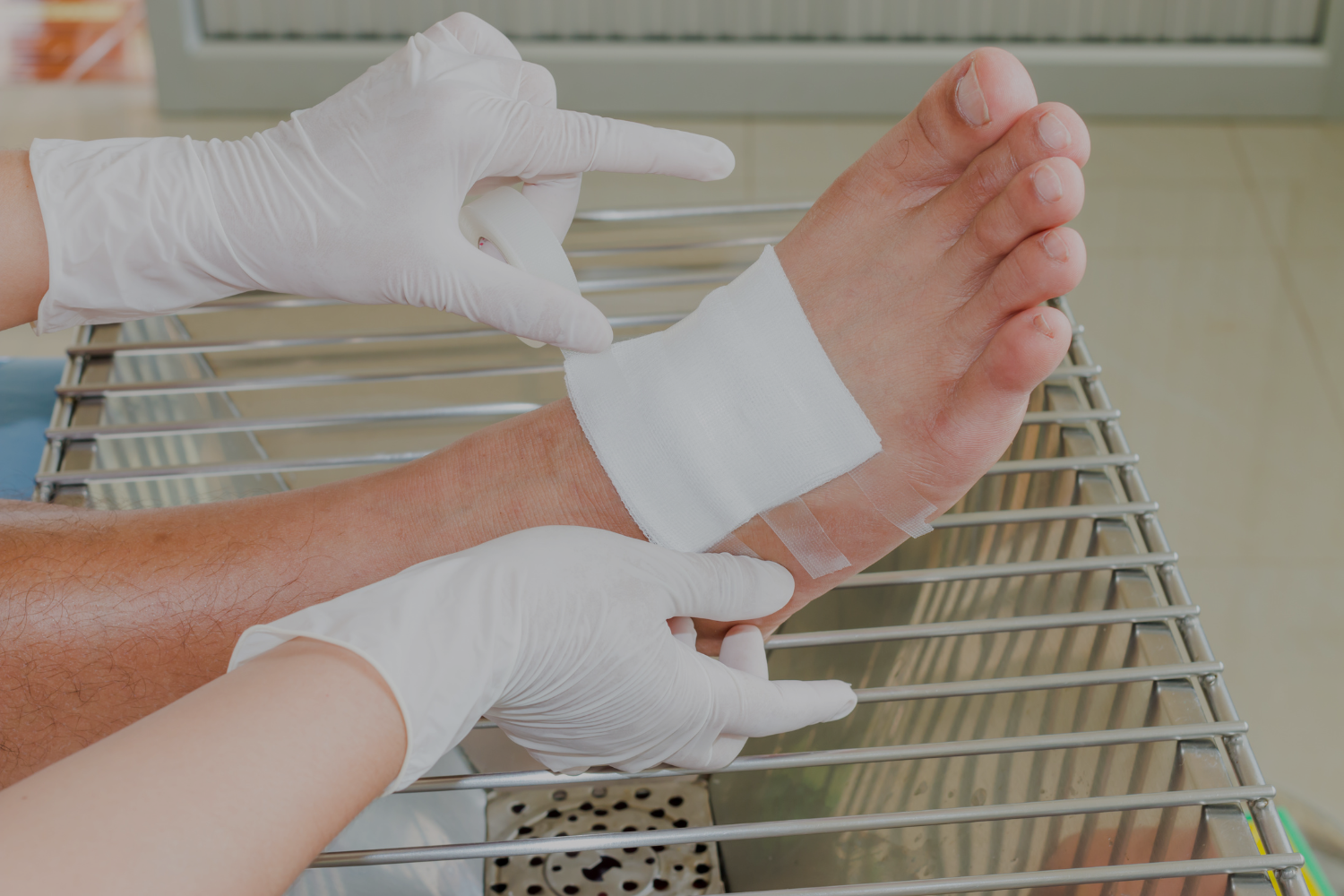Podiatrist Wound Care: Protecting Your Feet from Dangerous Wounds

Foot health is essential, yet many people overlook the importance of proper care, especially when it comes to wounds. For individuals with neuropathy—a condition causing loss of sensation in the feet—wounds can become a serious concern. At our practice, we specialize in professional wound care, helping patients prevent infections, heal safely, and maintain healthy feet.
What is a Wound?
A wound is essentially a break or hole in the skin of the foot. Most often, wounds develop from calluses or corns that have become too thick and eventually break through the skin. Why is this dangerous? The skin normally serves as a protective barrier, keeping bacteria and germs out. Once this barrier is compromised, bacteria can enter, potentially leading to infections, delayed healing, or more serious complications such as diabetic foot ulcers.
For people with neuropathy, the risk is higher because they may not feel the initial pain or discomfort that signals a problem. This makes early detection and professional wound care critical for preventing serious infections.
Understanding Calluses and Corns
Calluses and corns are thickened areas of skin that develop in response to pressure or friction. They commonly appear on the feet and are generally harmless if treated properly. However, if left unchecked, they can grow too thick and break the skin, creating a wound.
At our clinic, Dr. Feldman and our team offer safe and effective debridement of calluses and corns, typically recommended every 9 weeks, to prevent wounds from forming. This professional care keeps your feet healthy and reduces the risk of infections or complications.
Why Wounds Can Be Serious
Once a callus or corn breaks the skin, germs from the environment can easily enter the foot. This is particularly dangerous for people with diabetes or neuropathy because their bodies may have a harder time fighting infections. Even a small wound can quickly become infected, leading to pain, swelling, and potentially serious complications such as cellulitis or ulceration.
At our practice, we provide specialized wound care treatments designed to clean, dress, and monitor foot wounds closely, ensuring proper healing and reducing the risk of complications.
How We Provide Wound Care
Dr. Feldman is trained to handle all aspects of foot wound care, including:
- Routine foot exams: Detecting early signs of calluses, corns, or wounds before they become serious.
- Professional debridement: Safely removing thickened skin to prevent wounds from forming.
- Treatment of existing wounds: Cleaning, dressing, and monitoring foot wounds to prevent infection and encourage healing.
- Patient education: Teaching patients how to care for their feet, recognize warning signs, and take preventive steps at home.
For patients with neuropathy, diabetes, or other risk factors, we may also recommend special footwear, custom orthotics, or pressure-relieving devices to protect sensitive areas and reduce the risk of future wounds.
Tips for Preventing Foot Wounds
Even with professional care, patients can take steps at home to reduce the risk of wounds:
- Check your feet daily: Look for redness, swelling, blisters, or breaks in the skin.
- Keep feet clean and dry: Bacteria thrive in moist environments.
- Moisturize carefully: Avoid putting lotion between toes to prevent fungal infections.
- Wear proper footwear: Shoes should fit well and reduce pressure points.
- Schedule regular podiatry visits: Early intervention is key to preventing serious complications.
When to See a Podiatrist
If you notice any wound, blister, or unusually thick callus—especially if you have neuropathy or diabetes—don’t wait. Early treatment with professional wound care can prevent infections, reduce healing time, and protect your long-term foot health.
Conclusion
Foot wounds may start small, but they can quickly become serious if not addressed. Calluses and corns are common, but with proper care from our podiatrists specializing in wound care, these minor issues can be safely managed before they develop into dangerous wounds. Regular foot checks, professional debridement every 9 weeks, and careful at-home care are essential strategies for maintaining healthy feet.
If you or a loved one suffers from neuropathy, diabetes, or notice a persistent callus or corn, contact our clinic to schedule professional wound care today. Protecting your feet now can prevent serious complications in the future.
Other Articles
Same Day Appointments Available!
Henderson, NV 89074


%201.svg)



.svg)